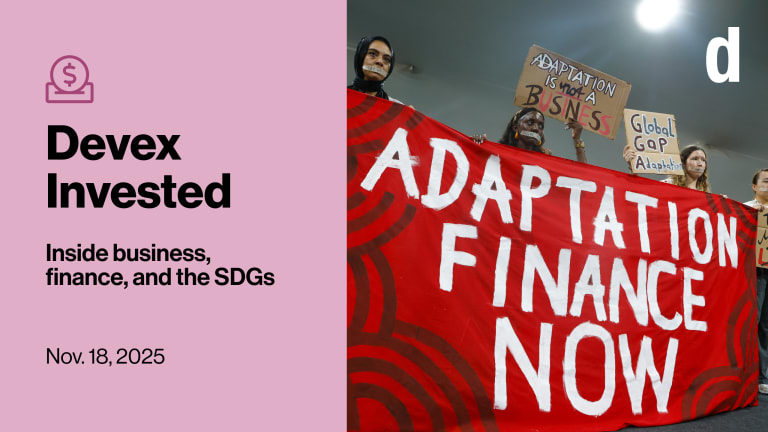The architect of the influential Bridgetown Agenda to reform the international financial system has rejected what he views as the “unhelpful conflation” of loss and damage funding with climate reparations, which campaigners have linked with liability and compensation.
In a comment to Devex, economist Avinash Persaud, who serves as climate envoy to Barbados Prime Minister Mia Mottley, said loss and damage was about “global solidarity” and helping countries rebuild after climate shocks rather than making amends for burning fossil fuels in the past. Many high-income countries, including the United States, don’t want to pay so-called climate reparations — but politicians have seized on the blurry line between reparations and loss and damage.
His comments come as the world swelters through its hottest month on record and prepares for the United Nations Climate Change Conference of the Parties, or COP 28, in November. Climate finance and loss and damage, issues which Persaud is closely involved in, are both set to be defining issues at the event.






